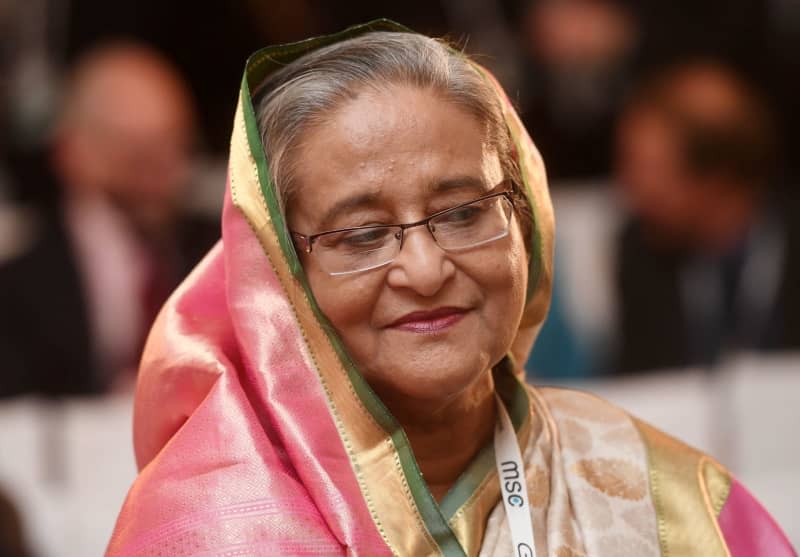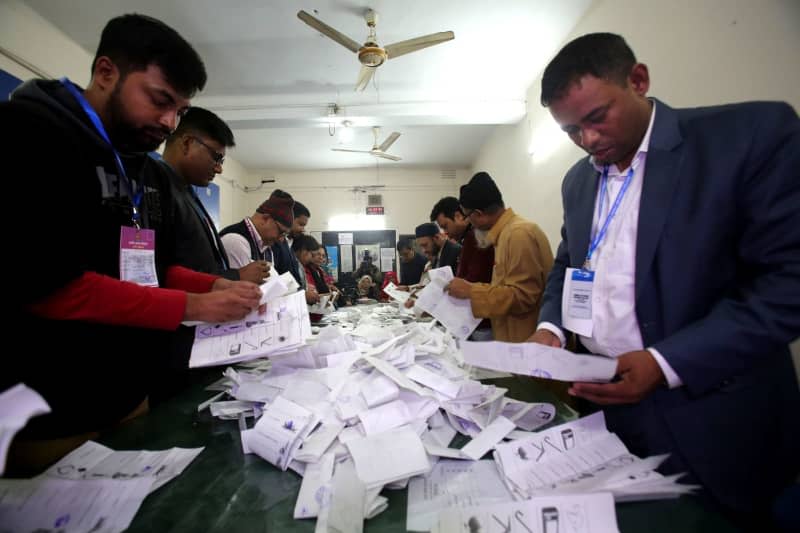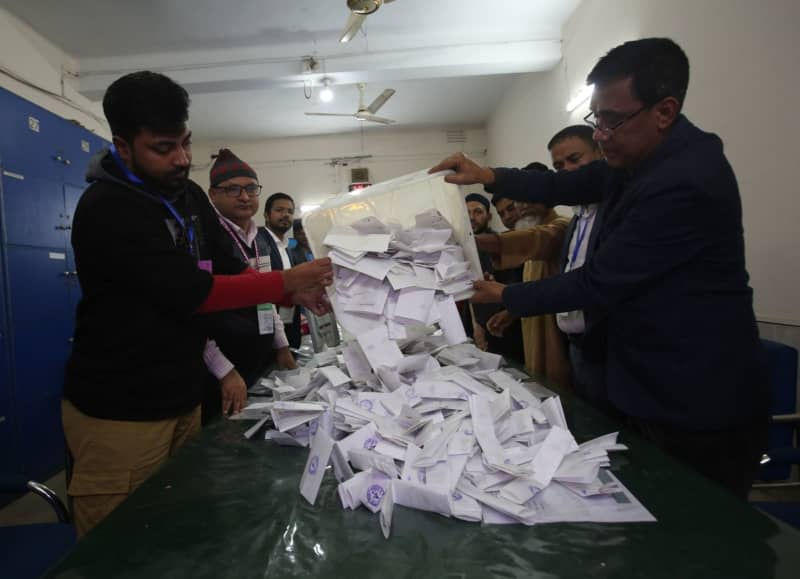Hasina wins fifth term amid opposition election boycott in Bangladesh

- Oops!Something went wrong.Please try again later.
Bangladeshi Prime Minister Sheikh Hasina is all set to assume office for her fourth straight and fifth overall tenure as her ruling Awami League (AL) party made a clean sweep in a parliamentary election that was boycotted by the main opposition party.
Hasina’s party won in more than two-thirds of the seats in Sunday’s election to the unicameral parliament of 300 lawmakers. Fifty other lawmakers in the seats reserved for women are elected by the MPs from regular seats once the new parliament gets down to business.
The Awami League secured 223 seats out of 298 parliamentary seats, Chief Election Commissioner Kazi Habibul Awal said at a news conference on Monday.
The authorities suspended voting in two constituencies, one because of violence during Sunday’s election, and the other was suspended over the death of an independent candidate of natural causes a week ago.
According to Awal, the current opposition in parliament, the Jatiyo Party, won only 11 seats while independent contenders, mostly AL rebels who were allowed to run freely as part of a strategy to drum up enthusiasm among voters amid the absence of largest opposition party, bagged 61 seats.
The Workers Party of Bangladesh, Jatiya Samajtantri Dal and Kalyan Party each secured one seat in the election that was marred by low turnout and sporadic violence that killed at least one person on Sunday.
Voter turnout was 41.8%, the Chief Election Commissioner said according to the final tally, compared to more than 80% in the 2018 general election. Nearly 50 million out of 120 million voters cast their vote.
Awal earlier said the election authorities tried their best to ensure fairness in the election amid the boycott of a major political party and its allies.
The Bangladesh Nationalist Party (BNP) of former prime minister Khaleda Zia, Hasina’s main political rival, rejected Sunday’s election as a farce.
The party, which boycotted the election over fears that the polls would be rigged and called on the people not to vote, claimed that its call was successful.
“The people of this country rejected the stage-managed election, where the real voters’ turnout was not more than 2%,” Abdul Moyeen Khan, a senior leader of the BNP, told reporters.
He told reporters on Monday that his party would continue its actions against Hasina’s government to restore people’s voting rights in Bangladesh.
Hasina, now 76, the longest serving leader in Bangladesh, is credited for her efforts in the social and economic fronts that eventually helped raise the South Asian nation to a developing one from the status of "least developed country" ever since she took over in 2009 for her second tenure as prime minister.
To her supporters, Hasina is a "herald of change," but her critics call her an authoritarian thanks to her handling of her political rivals with an iron fist.
Rights group accuse her of silencing critics, curbing freedom of speech and the media, and violation of human rights during her three consecutive terms stretched over one and a half decades – allegations that her party denies.
Her fourth straight term in office would not be much more comfortable, political analysts say.
“It is really very difficult to predict as to how her new government would handle the situation amid the global economic slowdown and a possible pressure of more home-grown street agitations in the coming days,” said Ataur Rahman, a retired professor of political science at Dhaka University.
In line with the constitution, the Bangladeshi president will invite Hasina, as the leader of the majority party, to form the next government.



